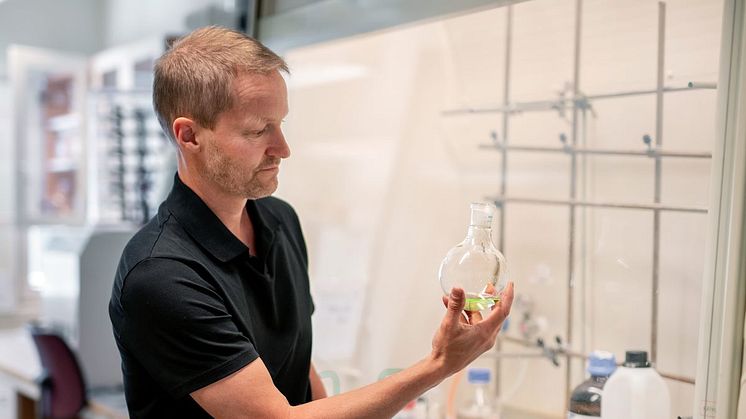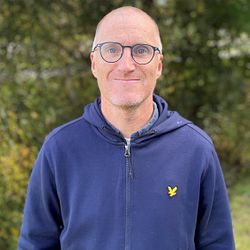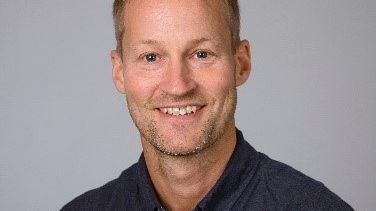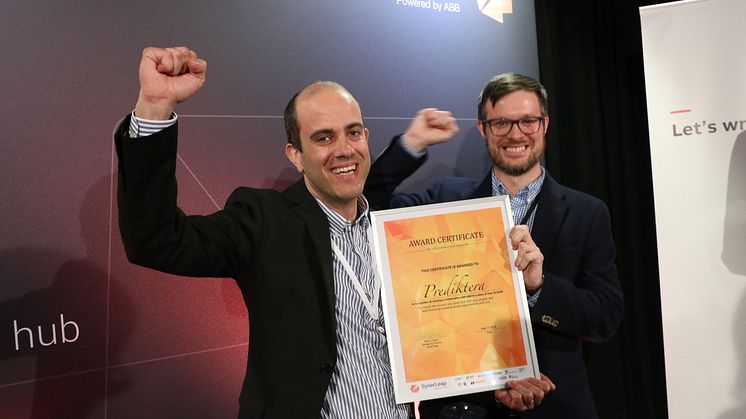
Pressmeddelande -
Umeå researcher wants to save millions of lives with new antibiotics
Fredrik Almqvist, CEO of QureTech Bio based in Umeå in northern Sweden, is among thousands of researchers hoping to draw attention to the challenges of antibiotic resistance as part of World Antibiotic Awareness Week (18-24 November).
“It’s a problem that’s comparable to the climate crisis. We have to find new ways to kill antibiotic resistant disease-causing bacteria so we can save millions of lives every year,” he says.
Modern healthcare is heavily dependent on antibiotics, but resistant bacteria is a growing and constant threat. When antibiotics cease to work even normal operations can become life-threatening. It is estimated that after 2050 around 10 million people could die annually due to antibiotic resistance unless we take action now.
“When most people think about antibiotics they reflect on their children who have had an ear infection or something similar. But it’s so much bigger than that. In reality it is impossible to carry out cancer treatment or care for premature babies without antibiotics,” says Fredrik Almqvist, who has himself conducted research on new antibiotics alternatives at Umeå University since the late 1990s.
He continues: “Extensive use of antibiotics increases the risk of bacteria developing resistance. We need to become better at using antibiotics more sensibly”.
Antibiotics are used to treat everything from chlamydia, which is non-fatal but can lead to sterility and blindness, to infections that can kill a normally healthy patient in just a couple of days.
“When you realise the sheer number of illnesses antibiotics treat you start to appreciate how many people need it. Nearly 140 million people are treated for chlamydia annually and every year almost ten million people get tuberculosis,” says Fredrik Almqvist.
QureTech Bio, which he co-founded in 2010, is currently working on three projects aimed at treating tuberculosis, chlamydia and health-care associated infections . The company has developed new substances with various mechanisms that can act as traditional antibiotics, enhance the effect of existing antibiotics or disarm bacteria instead of killing them.
“Umeå is definitely a strong player internationally in this field. For example, researcher Emmanuelle Charpentier, who was recently awarded the Nobel Prize, was a researcher at Umeå University. Her work on genetic scissors has helped us understand how bacteria protect themselves against virus attacks. In short, Umeå is a pretty cool place to carry out research!” says Fredrik Almqvist.
He believes everyone can play their part in reducing the problem of antibiotic resistance by being more careful about what they eat. It is estimated 70 per cent of the world’s total antibiotic usage is in food production.
He became interested in chemistry as a high school student in Skellefteå.
“I had a fantastic teacher named Dan-Olov Andersson. A little later I discovered that lots of students that had been inspired by him also became professors, so I took the initiative and nominated Dan-Olov as an honorary doctor at Umeå University in 2008. He represents how important teachers are and the great job they do”.
Antibiotic-resistant bacteria can be transmitted between humans as well as via animals, food and in our environment. Bacteria can also spread antibiotic resistance by exchanging resistance with each other. Important steps to reduce the need for antibiotics are better healthcare and personal hygiene routines that can prevent infections and the spread of infection. The childhood vaccination program, together with flu and pneumococcal vaccinations of the elderly, also help reduce infection levels.
“We should take the right antibiotics to specifically treat what is making us sick. In the Swedish healthcare system, we are generally careful what we prescribe, but in large parts of the world you can buy antibiotics freely”, says Fredrik Almqvist, and continues:
“To put it into context let’s look at the COVID-19 pandemic. It is a virus, but it is also linked to antibiotic resistance. That’s because a common consequence of having had COVID-19 for a longer period is that you can also contract a bacterial infection. You may then need antibiotics to survive. But COVID-19 is not the only pandemic active in the world right now. Tuberculosis kills 1.4 million people every year. If we get rid of COVID-19 we will rightly remember the pandemic with a sense of horror. Yet tuberculosis claims 1.4 million lives a year, year after year after year”.
Large sums of money are currently being pumped into crisis responses around the world to keep economies afloat. Fredrik Almqvist believes if just a fraction of this investment could be spent on developing new variants of antibiotics and antiviral drugs that will work on viruses in the future, then we would already be several steps closer to finding a solution.
“That's why World Antibiotic Awareness Week is so important. We must make the problem visible and politicians must begin to understand how serious it is. The World Health Organisation classifies the antibiotic resistance threat on a par with climate change. The international community must therefore continue to search for a unified way of dealing with this issue,” he concludes.
For more information, please contact:
Fredrik Almqvist, PhD Quretech Bio Co-Founder and CEO
fredrik.almqvist@quretech.com
+46 70-397 90 97
About Quretech Bio:
Quretech Bio is a Swedish pharmaceutical development company that addresses a significant medical need by developing a new class of antibacterial agents that target antimicrobial resistance. Quretech Bio’s vision is to develop first-line medicines to combat infectious diseases and the occurrence of antibiotic resistance, establishing itself as a leading pharmaceutical discovery company in its field.
Relaterade länkar
Kategorier
Umeå Biotech Incubator (UBI) is one of Sweden’s state-of-the-art business incubators within the life sciences. We help researchers to use their data to the benefit of patients and citizens, improving their health. We support and train entrepreneurs in the fields of pharmaceuticals, diagnostics and medical engineering, and act as a bridge between academia, medicine and the business community.




